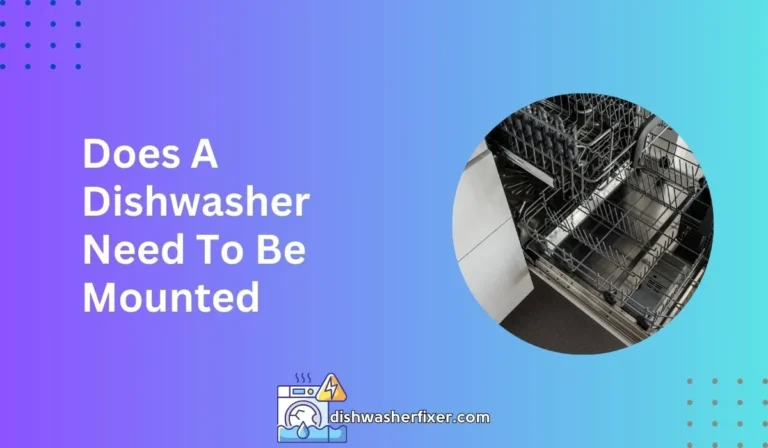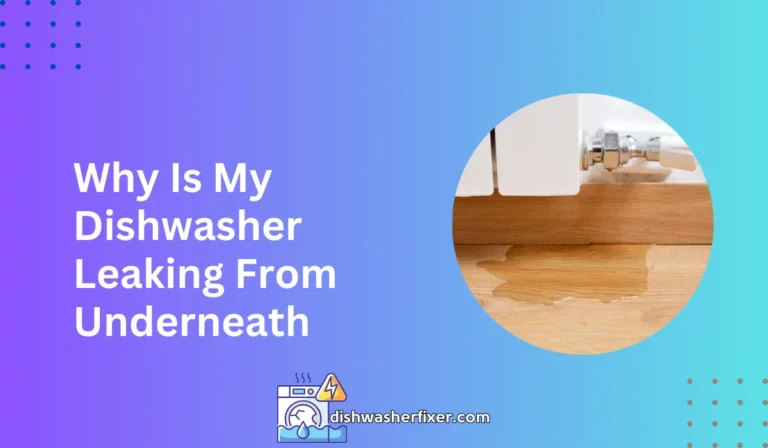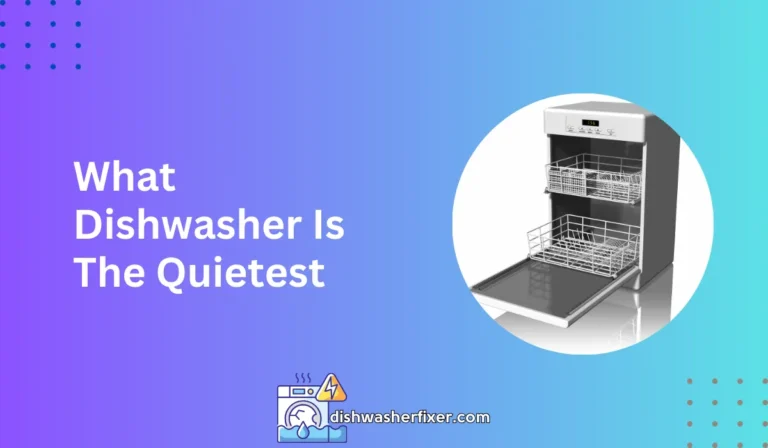Can You Use Dishwasher if Garbage Disposal Is Broken? Find Out Now!
Yes, you can use your dishwasher if your garbage disposal is broken. However, ensure the sink drain isn’t clogged to prevent water from backing up into the dishwasher. If the disposal’s damage causes a blockage, fix it before running the dishwasher to avoid water damage.
Understanding Dishwasher and Garbage Disposal Connections

How Dishwashers and Garbage Disposals Connect
In many homes, the dishwasher and garbage disposal share a connection to the plumbing system.
This setup allows water and small food particles from the dishwasher to pass through the garbage disposal, where they are ground up before entering the sewage system.
This design is efficient and space-saving, but it does rely on both appliances working properly.
The Water Flow and Waste Disposal Process
The process begins when the dishwasher pumps out the dirty water. This water flows into the garbage disposal through a hose.
Once in the disposal, any remaining food particles are ground up and flushed out into the main drainage system. This helps to prevent clogs in the plumbing and keeps the system running smoothly.
Implications of a Broken Garbage Disposal
If the garbage disposal is broken, it may not be able to grind up food particles, potentially leading to clogs.
Additionally, a malfunctioning disposal might prevent the dishwasher from draining correctly, as the pathway for the wastewater is obstructed. This could result in water backing up into the dishwasher or sink.
Risks and Considerations of Using a Dishwasher With a Broken Garbage Disposal
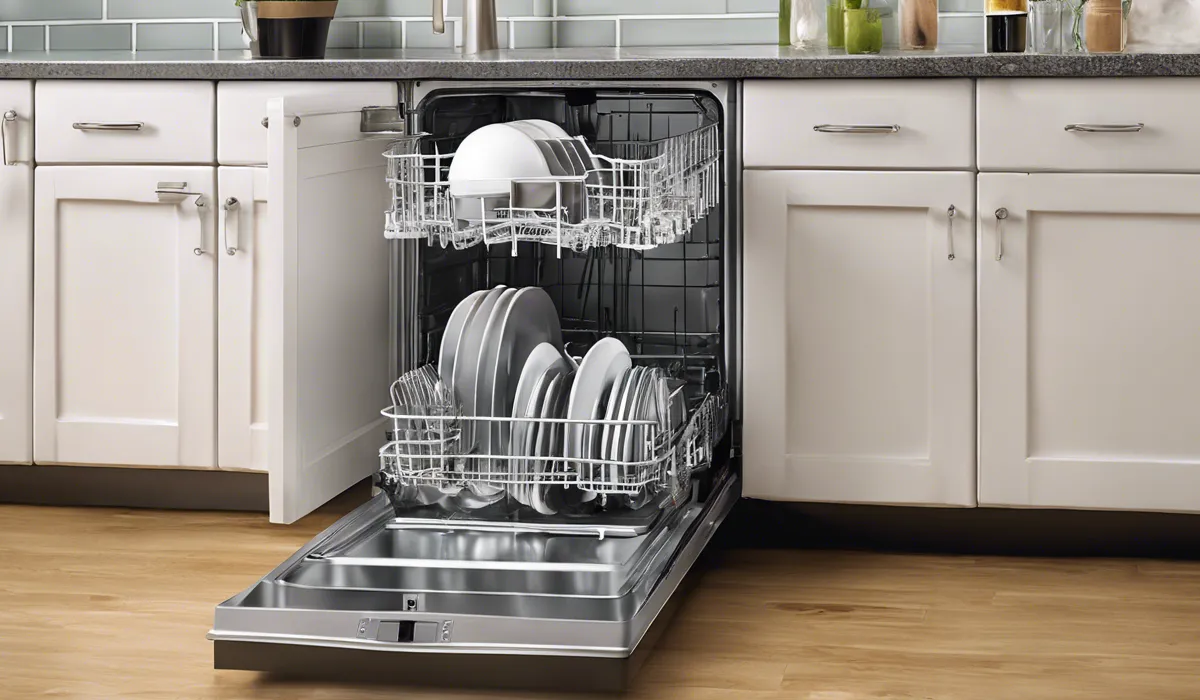
Potential for Clogs and Backups
Using a dishwasher with a broken garbage disposal increases the risk of clogs. Food particles and debris can accumulate in the pipes, causing water to back up. It’s important to ensure the sink drain is clear before running the dishwasher to help mitigate this risk.
Impact on Drainage Ability
When the garbage disposal doesn’t work, the dishwasher may struggle to drain.
Water that cannot exit the appliance properly can lead to standing water inside the dishwasher, which is not only ineffective for cleaning dishes but can also promote the growth of mold and unpleasant odors.
Food Particles Affecting Performance
Dishwasher performance can be significantly impacted by food debris. The spray arms and filters can become clogged, reducing the machine’s efficiency and cleaning power.
Over time, this can also strain the dishwasher’s pump and motor, potentially leading to costly repairs.
Assessing Potential Dishwasher Damage
Continuous use of a dishwasher with a malfunctioning garbage disposal can lead to long-term damage.
It’s essential to assess the condition of both appliances and address any issues promptly to avoid the need for more extensive and expensive repairs down the line.
Alternatives and Solutions for Using Your Dishwasher
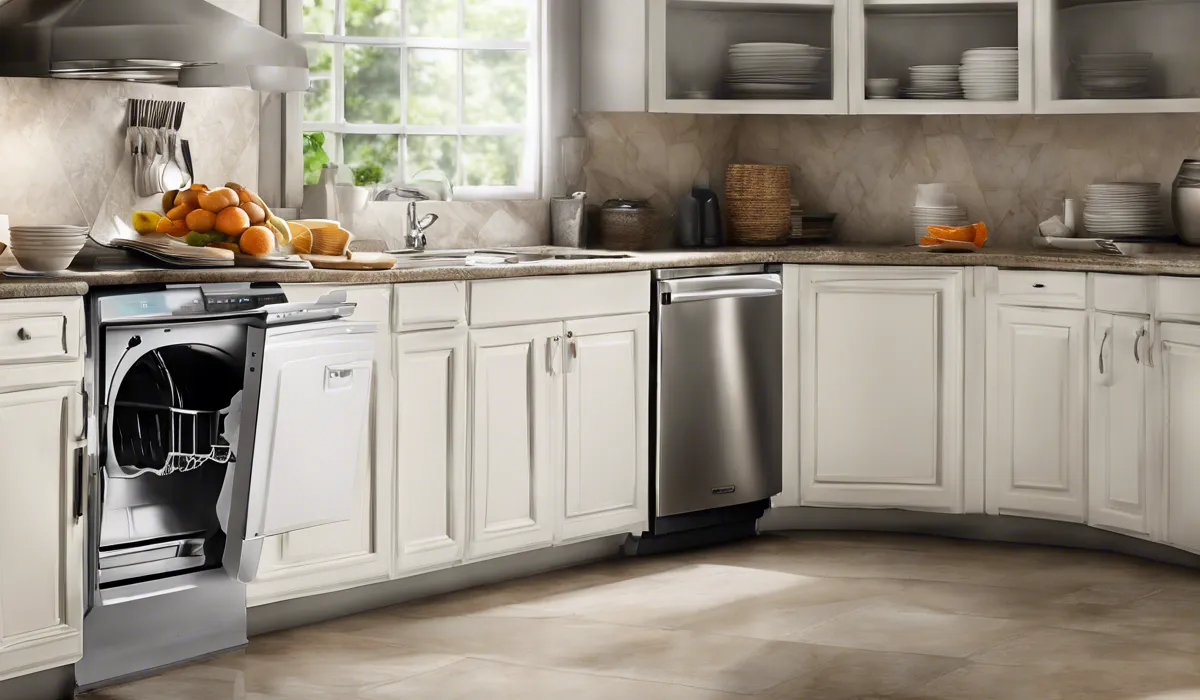
Temporary Measures Without Garbage Disposal
If you need to use your dishwasher and the garbage disposal is broken, there are temporary measures you can take.
Consider manually removing food scraps from your dishes before loading them. This reduces the amount of waste entering the system and minimizes the risk of clogs.
Best Loading Practices to Minimize Risks
To ensure your dishwasher operates as effectively as possible, even without a working garbage disposal, practice good loading techniques.
Avoid overloading the dishwasher and position dishes in a way that allows water to circulate freely, ensuring they get properly cleaned.
Dealing With Waste When Garbage Disposal Is Out
Without a garbage disposal, you’ll need to be more proactive in managing kitchen waste.
Use a strainer in your sink to catch food scraps, and dispose of them in the trash or a compost bin. This helps keep your plumbing clear and reduces the strain on your dishwasher.
Repair or Replacement: A Long-Term Solution
Ultimately, the best solution for a broken garbage disposal is to repair or replace it. A functioning disposal system supports the efficiency and longevity of your dishwasher.
It’s worth investing in a repair or a new unit to ensure the smooth operation of your kitchen appliances.
FAQs About Using Dishwasher with Broken Garbage Disposal
Can I run my dishwasher if the garbage disposal isn’t working?
Yes, you can run your dishwasher if the garbage disposal is broken, but make sure the sink drain is not clogged to prevent backup issues.
Will a broken garbage disposal affect my dishwasher’s performance?
No, a broken garbage disposal will not typically affect the dishwasher’s cleaning performance as long as there is no associated blockage in the sink drain.
What should I do if my dishwasher backs up due to a broken garbage disposal?
If water backs up into your dishwasher due to a broken garbage disposal, check for blockages and repair the disposal or clear the clog before using the dishwasher again.
Can a clogged garbage disposal cause water damage when using the dishwasher?
Yes, if the broken garbage disposal causes a blockage, it can lead to water backing up and potentially causing water damage when using the dishwasher.
Is it necessary to repair a broken garbage disposal before using the dishwasher?
It is not strictly necessary to repair the disposal before using the dishwasher, but it is important to ensure no blockage exists that could cause water to back up.
Final Thoughts
Using your dishwasher is possible even with a broken garbage disposal, as long as the sink drain remains clear. It’s essential to check for any clogs that might cause water to back up into the dishwasher.
Address any disposal-related blockages promptly to prevent water damage when operating the dishwasher.
